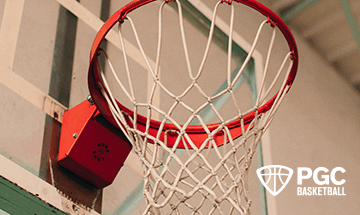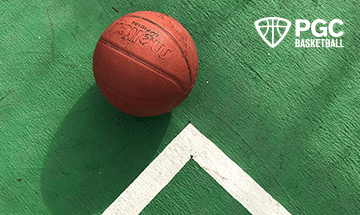Getting Nervous vs Choking
Choking may be the most talked-about, yet least substantive issue in sports. TV commentators and newspaper columnists, and of course talk show callers seem to love this concept. Almost anyone or any team that blows a lead is said to have choked. But statistics I have seen do not support this notion. If you check your team records you will probably find that you got behind by a dozen points in the first quarter as often as you lost twelve-point leads in the final quarter. Yet no one accuses a team that starts off badly as having choked. They simply didn’t do well.
Athletes and teams often don’t do well. End-of-game nervousness doesn’t seem to cause more bad plays than occur any other time in the game, it simply gets more attention. In other words, don’t beat yourself up or consider yourself a choker just because you happen to lose a lead sometime. Teams that go from three-point leads to six-point deficits early in a game rarely draw any conclusions from those nine-point swings. But teams and athletes that suffer a nine-point swing and lose a game near the end may label themselves chokers and actually contribute (because of their negative beliefs) to losing leads in the future when otherwise victories would have occurred.
Illogical thinking of this kind—creating fallacious casual relationships—can be dangerous in a variety of settings. Some athletes might blame a loss on seeing a black cat. “Yesterday I saw a black cat and today we lost.”
No doubt about that one, is there? The fact that one team’s offensive line outweighed the other team’s defensive line by seventy pounds per man may also have had something to do with it.
Be careful about the conclusions you draw and the labels you put on things. Not too many athletes or teams actually choke, though most teams gain and lose leads several times per game.
If you do fear choking, and fear that your muscles tighten and your nerves rattle and your performance suffers at the end of big games, here are a few things to consider …
1. Everyone gets nervous at the end of big games. No harm in that. It happens to even big stars. Remember, nervousness is natural. Invite it in, don’t try to avoid it. Embrace it. You can play well in spite of some rattling nerves. Athletes do it all the time.
2. Remind yourself what got you to where you are. If you have a lead near the end of a big game, how did you get it? Were you aggressive? Did you execute sharply? Whatever got you the lead is what can get you the victory. “Dance with who brung ya,” as the old saying goes. Stick with what got you there. Doing what you’ve been doing doesn’t guarantee you a victory but it certainly makes sense to concentrate on doing what has worked.
3. Take your attention off yourself and your own performance and concentrate on lifting and inspiring your teammates. Not only will your encouragement help them get past their jitters, the action and intensity of your efforts will likely have a positive impact on your jitters as well.
4. Remind yourself that you are playing a sport, that failure and defeat are not the worst things in the world. They happen to everyone. And even when you’re down, you have a chance. At least go after it. Go for it. Carpe Diem, seize the day. Put yourself in a frame of mind to seek a victory aggressively rather than to watch the clock, hoping the time ticks away before you have a chance to lose.
Most athletes and teams contribute to their own losses when they are tentative and hopeful instead of staying aggressive and demanding. Consider the running back who goes from wanting to slash through a line like a blazing bowling ball knocking down pins to concentrating on not fumbling. The difference in thinking is so dramatic that the fumble suddenly becomes more, not less, likely. Although it is natural at the end of a game you are winning to start thinking about not messing up, you have to think through that trap and get your mind back on splattering those pins against the walls.
Remember that what others may call choking is usually just a perfectly logical outcome based on nothing more than ability or lack of it. When a 50 percent free throw shooter goes to the line at the end of a big game, he has a 50 percent chance of missing. When he misses, did he choke? Maybe. But he misses often—at home, in warm ups, and at the beginning of games. So it can’t be such a surprise, or necessarily a choke, when he misses at the end of a big game.
If you are an excellent shooter, chances are, even if you feel nervous you will succeed most of the time (not every time) at the end of big games. If you are a poor shooter feeling nervous you will likely fail most of the time at the end of big games, though occasionally you will surprise people and score.
Remember, too, that choking or not doing well at crunch time is also a function of experience. If you find yourself in the first big game of your life, you are indeed more likely to mess up than an athlete who has been in a dozen big games. There is no way around that. Just do the best you can and hope for luck. And if you lose or blow it, I’m sorry, but there are no guarantees of success for athletes. Sports success goes most often to athletes who persist, who overcome adversity, and who learn from failure. If you are lucky enough to be able to avoid having to learn the hard way, congratulations. Write a book. But console yourself if you do mess up. There are better days ahead, and just about every champion has had to say at one time or another, “Oh well, we’ll get ’em next year.”
I’ve failed over and over again in my life, and that’s why I succeed. – Michael Jordan
Choking or not choking, when all is said and done, is tightly connected to the skills and habits you have developed over a long period of time. The grand coaches’ cliche has practical meaning over and over again: the way you practice is the way you will (usually) play the game, beginning, middle and end. If you want to limit the chances that you will choke in a big game, practice, practice, practice. Improve, improve, improve. Develop a habit of diligence and excellence in practice every day, and it is very likely to carry you through the games.
—Excerpted from the book, “Stuff! Good Players Should Know.”
Related Articles
Two Youth Basketball Organizations from the Jr. Nba’s Flagship Network Partner up to ‘teach the Game the Way It’s Meant to Be Played’
For the first time in history, two best-in class youth basketball organizations and members of the Jr. NBA Flagship Network – PGC Basketball and Pro Skills Basketball – have entered into an official partnership.
PGC Announces 2023 Fall Shooting College Schedule Dates & Locations
PGC Announces 2023 Fall Shooting College Schedule Dates & Locations
About PGC
PGC Basketball provides intense, no-nonsense basketball training for players and coaches. Our basketball camps are designed to teach players of all positions to play smart basketball, be coaches on the court, and be leaders in practices, games and in everyday life.
We combine our unique PGC culture with a variety of teaching methods and learning environments to maximize the learning potential of those that attend our sessions. In addition to spending 6-7 hours on the court each day, lessons will be reinforced through classroom sessions and video analysis.
Our goal at PGC is to empower you with the tools to fulfill your basketball dreams, while also assisting you in experiencing the joy of the journey.
To learn more about PGC Basketball, including additional basketball training tips and videos, visit our YouTube Channel or find us on Facebook, Instagram, and Twitter.













Share This Post